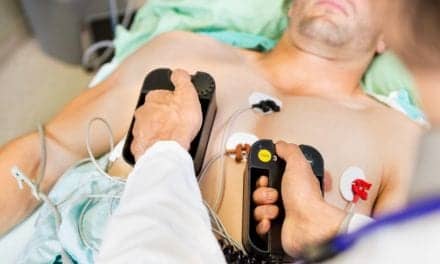ProterixBio, is offering the Presage ST2 Assay as a testing service through ProterixBio’s high-complexity CLIA laboratory. This assay has been FDA cleared for use in conjunction with clinical evaluation as an aid in assessing the prognosis of patients diagnosed with chronic heart failure.
The protein ST2 (suppressor of tumorigenicity 2) is a member of the interleukin-1 receptor family. ST2 is expressed as two isoforms generated by alternative promoter splicing and 3′ processing. One isoform is a membrane bound version (ST2L) that functions as a receptor for IL-33, whereas the other isoform is a soluble form (sST2) that functions as a decoy receptor by binding IL-33 and preventing ST2L signaling.
Both ST2 and IL-33 function as “alarmins” that alert the immune system to cellular damage. Cardiac stress has been shown to result in an upregulation and release of ST2 and IL-331,2. IL-33 signaling has been shown to be cardioprotective, whereas sST2 blocks IL-33 signaling thereby reducing the cardioprotective function of IL-33. Elevated levels of sST2 are thought to block the cardioprotective signal of IL-33 and lead to increased stress on the heart, resulting in tissue fibrosis and disease progression3. Thereby, sST2 levels can provide a measure that aids in the prognosis of patients diagnosed with heart failure, as evidenced in the Presage ST2 assay findings in the HF-ACTION cohort4,5.
The Presage ST2 assay provided by ProterixBio is a 510(k) cleared device 5 providing a quantitative measure of soluble ST2 in serum or plasma (K3EDTA and Heparin). The assay cutoff of 35ng/mL was established between the 90th and 95th percentile of a reference cohort self-declared as healthy with no history of heart disease. sST2 levels greater than 35ng/mL are demonstrated to be predictive of increased risk for cardiovascular disease hospitalization and mortality and all cause hospitalization and mortality within the referenced study period (4 years).
sST2 levels have demonstrated value, in conjunction with clinical evaluation, as an aid in the prognosis of patients diagnosed with chronic heart failure. And, more recently, sST2 levels have demonstrated independent prognostic value in a large prospective clinical trial aimed at treatment, ARNI compared to ACEI, with improved outcomes in patients with heart failure with reduced ejection fraction, the PARADIGM-HF Trial 6.
The Presage ST2 Assay is intended to be used only in patients with chronic heart failure and should not be used for diagnosis of heart failure.
“I am excited about the opportunity to have a rapidly available complementary biomarker that will better guide intensive heart failure management,”says Christopher Bell, Acute Care Nurse Practitioner at Cardiology Associates of North Mississippi.“We utilize sST2 as a complement to proBNP — Soluble ST2 provides appreciation of the chronicity of the underlying disease state. When we observe improvements in both we recognize our heart failure management is positively impacting patient care.”
References:
1 Weinberg EO, Lee RT, et al. Expression and Regulation of ST2, an Interleukin-1 Receptor Family Member, in Cardiomyocytes and Myocardial Infarction. Circulation. 2002 December 3; 106(23): 2961–2966.
2 Sonada S, Lee RT, et al. IL-33 and ST2 comprise a critical biomechanically induced and cardioprotective signaling system. J Clin Invest 2007;117:6:1538-1549.
3 Pascual-Figal DA, Januzzi JL. The biology of ST2: the International ST2 Consensus Panel. Am J Cardiol. 2015;115(suppl 7):3B–7B.
4 Ahmad T, Fiuzat M, Neely B. et al. Biomarkers of Myocardial Stress and Fibrosis as Predictors of Mode of Death in Patients with Chronic Heart Failure. JACC Heart Fail. 2014 June ; 2(3): 260–268.
5 sST2 Presage Assay Kit 510k – https://www.accessdata.fda.gov/cdrh_docs/reviews/K111452.pdf
6 O’Meara E, Prescott MF, et al. Independent Prognostic Value of Serum Soluble ST2 Measurements in Patients With Heart Failure and a Reduced Ejection Fraction in the PARADIGM-HF Trial (Prospective Comparison of ARNI With ACEI to Determine Impact on Global Mortality and Morbidity in Heart Failure). Circ Heart Fail. 2018;11:e004446.





